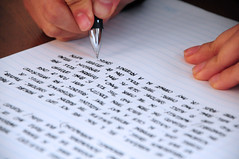| 598275086 | Population revolution | huge growth in population in western Europe beginning about 1730; prelude to industrialization | |
| 598275087 | Proto-industrialization | preliminary shift away from an agricultural economy; workers become full-or part-time producers who worked at home in a capitalist system in which materials, work, orders, and sales depended upon urban merchants; prelude to the Industrial Revolution | |
| 598275088 | American Revolution | rebellion of the British American Atlantic seaboard colonies; ended with the formation of the independent United States | |
| 598275089 | French Revolution | overthrow of the the Bourbon monarchy through a revolution beginning in 1789; created a republic and eventually ended with Napoleon's French Empire; the source of many liberal movements and constitutions in Europe. | |
| 598275090 | Declaration of the Rights of Man and the Citizen | adopted during the French Revolution; proclaimed the equality of French citizens; became a source document for later liberal movements | |
| 598275091 | guillotine | introduced as a method of humane execution; utilized during the French Revolution against thousands of individuals, especially during the Reign of Terror | |
| 598275092 | Congress of Vienna | met in 1815 after the defeat of France to restore the European balance of power | |
| 598275093 | Liberalism | political ideology that flourished in 19th-century western Europe; stressed limited state interference in private life, representation of the people in government; urged importance of constitutional rule and parliaments | |
| 598275094 | Radicals | followers of a 19th-century western European political emphasis; advocated broader voting rights than liberals; urged reforms favoring the lower classes | |
| 598275095 | Socialism | political ideology in 19th-century Europe; attacked private property in the name of equality; wanted state control of the means of production and an end to the capitalistic exploitation of the working class | |
| 598275096 | Nationalism | European 19th-century viewpoint; often allied with other "isms"; urged the importance of national unity; valued a collective identity based on ethnic origins | |
| 598275097 | Greek Revolution | rebellion of the Greeks against the Ottoman Empire in 1820; a key step in the disintegration of the Turkish Balkan empire | |
| 598275098 | French Revolution of 1830 | second revolution against the Bourbon dynasty; a liberal movement which created a bourgeois government under a moderate monarchy | |
| 598275099 | Belgian Revolution of 1830 | produced Belgian independence from the Dutch; established a constitutional monarchy | |
| 598275100 | Reform Bill of 1832 | British legislation that extended the vote to most male members of the middle class | |
| 598275101 | Factory system | intensification of all of the processes of production at a single site during the Industrial Revolution; involved greater organization of labor and increased discipline | |
| 598275102 | French Revolution of 1848 | overthrew the French monarchy established in 1830; briefly established the second French Republic | |
| 598275103 | Revolutions of 1848 | the nationalist and liberal movements within the Hapsburg Empire (Italy, Germany, Austria, Hungary); after temporary success they were suppressed | |
| 598275104 | American Civil War | fought to prevent the secession of the southern states; the first war to incorporate the products and techniques of the Industrial Revolution; resulted in the abolition of slavery and the reunification of the United States | |
| 598275105 | Social Question | issues relating to workers and women, in western Europe during the Industrial Revolution; became more critical than constitutional issues after 1870 | |
| 598275106 | Revisionism | socialist thought that disagreed with Marx's formulation; believed that social and economic progress could be achieved through existing political institutions | |
| 598275107 | Feminist movement | sought legal and economic gains for women, among them equal access to professions and higher education; came to concentrate on the right to vote; won initial support from middle-class women | |
| 598275108 | Mass leisure culture | an aspect of the later Industrial Revolution; decreased time at work and offered opportunities for new forms of leisure time, such as vacation trips and team sports | |
| 598275109 | Romanticism | 19th-century western European artistic and literary movement; held that emotions and impression, not reason, were the keys to the mysteries of human experience and nature; sought to portray passions, not calm reflection | |
| 598275110 | American exceptionalism | historical argument that the development of the United States was largely individualistic and that contact with Europe was incidental to American formation | |
| 598275111 | Triple Alliance | alliance between Germany, Austria-Hungary, and Italy at the end of the 19th century; part of the European balance of power system before World War I | |
| 598275112 | Triple Entente | agreement between Britain, France, and Russia in 1907; part of the European balance of power system before World War I | |
| 598275113 | Balkan nationalism | movements to create independent states and reunite ethnic groups in the Balkans; provoked crises within the European alliance system that ended with the outbreak of World War I | |
| 598275114 | Kingdom of Mataram | controlled most of interior Java in the 17th century; weakness of the state after the 1670s allowed the Dutch to expand their control over all of Java | |
| 598275115 | Sepoys | Indian troops, trained in European style, serving the French and British | |
| 598275116 | Raj | the British political establishment in India | |
| 598275117 | Plassey (1757) | battle between the troops of the British East India Company and the Indian ruler of Bengal; British victory gave them control of northeast India | |
| 598275118 | Presidencies | three districts that comprised the bulk of British-ruled territories in India during the early 19th century; capitals at Calcutta, Madras, and Bombay | |
| 598275119 | Princely states | ruled by Indian princes allied with the Raj; agents of the East India Company were stationed at their courts to ensure loyalty | |
| 598275120 | Nabobs | name given to British who went to India to make fortunes through graft and exploitation; returned to Britain to live richly | |
| 598275121 | Tropical dependencies | Western European possessions in Africa, Asia, and the South Pacific where small numbers of Europeans ruled large indigenous populations | |
| 598275122 | White Dominion | a type of settlement colony-- as in North America and Australia-- where European settlers made up the majority of the population | |
| 598275123 | Settler colonies | colonies-- as South Africa, New Zealand, Algeria, Kenya, and Hawaii-- where minority European populations lived among majority indigenous peoples | |
| 598275124 | White racial supremacy | belief in the inherent superiority of whites over the rest of humanity; peaked in the period before World War I | |
| 598275125 | Great Trek | migration into the South African interior of thousands of Afrikaners seeking to escape British control | |
| 598275126 | Boer republics | independent states-- the Orange Free State and Transvaal-- established during the 1850s in the South African interior by Afrikaners | |
| 598275127 | Boer War (1899-1902) | fought between the British and Afrikaners; British victory and post-war policies left Africans under Afrikaner control | |
| 598275128 | Gran Colombia | existed as an independent state until 1830 when Colombia, Venezuela, and Ecuador became separate independent nations | |
| 598275129 | Caudillos | leaders in independent Latin America who dominated local areas by force in defiance of national policies; sometimes seized the national government | |
| 598275130 | Centralists | Latin American politicians who favored strong, centralized national governments with broad powers; often supported by conservative politicians | |
| 598275131 | Federalists | Latin American politicians who favored regional governments rather than centralized administrations; often supported by liberal politicians | |
| 598275132 | Monroe Doctrine | United States declaration of 1823 that any attempt by a European country to colonize the Americas would be considered an unfriendly act | |
| 598275133 | Guano | bird droppings utilized as fertilizer; a major Peruvian export between 1850 and 1880 | |
| 598275134 | Positivism | a philosophy based on the ideas of Auguste Comte; stressed observation and scientific approaches to the problems of society | |
| 598275135 | Manifest Destiny | belief in the United States that it was destined to rule from the Atlantic to the Pacific | |
| 598275136 | Mexican-American War | 1846-1848; American expansion leads to dispute over California and Texas | |
| 598275137 | Treaty of Guadalupe HIdalgo | 1848; ratified by the United States; Mexico lost one-half of its national territory | |
| 598275138 | La Reforma | name of Benito Juarez's liberal revolution in Mexico | |
| 598275139 | Gauchos | mounted rural workers in the Rio de la Plata region | |
| 598275140 | Argentine Republic | replaced state of Buenos Aires in 1862 as a result of a compromise between centralists and federalists | |
| 598275141 | Fazendas | coffee estates that spread into the Brazilian interior between 1840 and 1860; caused intensification of slavery | |
| 598275142 | Modernization theory | the belief that the more industrialized, urban, and modern a society became, the more social change and improvement were possible as traditional patterns and attitudes were abandoned or transformed | |
| 598275143 | Dependency theory | the belief that development and underdevelopment were not stages but were part of the same process; that development and growth of areas like western Europe were achieved at the expense of underdevelopment of dependent regions like Latin America | |
| 598275144 | Spanish-American War | fought between Spain and the United States beginning in 1898; resulted in annexation of Puerto Rico and the Philippines; permitted American intervention in the Caribbean | |
| 598275145 | Panama Canal | the United States supported an independence movement in Panama, then part of Colombia, in return for the exclusive rights for a canal across the Panama isthmus | |
| 598275146 | Tanzimat reforms | Western-style reforms within the Ottoman Empire between 1839 and 1876; included a European-influenced constitution in 1876 | |
| 598275147 | Ottoman Society for Union and Progress | Young Turks; intellectuals and political agitators seeking the return of the 1876 constitution; gained power through a coup in 1908 | |
| 598275148 | Mamluks | rulers of Egypt under the Ottomans; defeated by Napoleon in 1798; revealed thee vulnerability of the Muslim world | |
| 598275149 | Suez Canal | built to link Mediterranean and Red seas; opened in 1869; British later occupied Egypt to safeguard their financial and strategic interests | |
| 598275150 | Banner armies | the forces of Nuhaci; formed of calvary units, each identified by a flag | |
| 598275151 | Compradors | wealthy group of merchant under the Qing; specialized in the import-export trade on China's south coast | |
| 598275152 | Opium War | fought between Britain and Qing China beginning in 1839 to protect British trade in opium; British victory demonstrated Western superiority over China | |
| 598275153 | Taiping Rebellion | massive rebellion in southern China in the 1850s nd 1860s led by Hong Xinquan; sought to overthrow the Qing dynasty and Confucianism | |
| 598275154 | Boxer Rebellion | popular outburst aimed at expelling foreigners from China; put down by intervention of the Western powers | |
| 598275155 | Holy Alliance | alliance between Russia, Prussia, and Austria in defense of the established order; formed by the most conservative monarchies of Europe during the Congress of Vienna | |
| 598275156 | Decembrist rising | unsuccessful political revolt in 1825 in Russia by mid-leve; army officers advocating reforms | |
| 598275157 | Crimean War | 1854-1856; began with a Russian attack on the Ottoman Empire; France and Britain joined on the Ottoman side; resulted in a Russian defeat because of Western industrial might; led to Russian reforms under Alexander II | |
| 598275158 | Emancipation of the serfs | Alexander II in 1861 ended serfdom in Russia; serfs did not obtain political rights and had to pay the aristocracy for lands gained | |
| 598275159 | Zemstvoes | local political councils created as part of Alexander II's reforms; gave middle-class professionals experience in government but did not influence national policy | |
| 598275160 | Trans-Siberian railroad | constructed during the 1870s and 1880s to connect European Russian with the Pacific; increased the Russian role in Asia | |
| 598275161 | Intelligentsia | Russian term for articulate intellectuals as a class; desired radical change in the Russian political and economic system; wished to maintain a Russian culture distinct from the West | |
| 598275162 | Anarchists | political groups that thought the abolition of formal government was a first step to creating a better society; became important in Russian and was the modern world's first large terrorist movement | |
| 598275163 | Russo-Japanese War | 1904; Russian expansion into northern China leads to war; rapid Japanese victory followed | |
| 598275164 | Bolsheviks | literally the majority party; but actually a minority group; the most radical branch of the Russian Marxist movement; led by Lenin | |
| 598275165 | Russian Revolution of 1905 | defeat by Japan marked by strikes by urban workers and insurrections among the peasantry; resulted in temporary reforms | |
| 598275166 | Duma | Russian national assembly created as one of the reforms following the Revolution of 1905; progressively stripped of power during the reign of Nicholas II | |
| 598275167 | Stolypin reforms | Russian minister who introduced reforms intended to placate the peasantry after the Revolution of 1905; included reduction of land redemption payments and an attempt to create a market-oriented peasantry | |
| 598275168 | Kulaks | agricultural entrepreneurs who utilized the Stolypin reforms to buy more land and increase production | |
| 598275169 | Terakoya | commoner schools founded during the Tokugawa shogunate to teach reading, writing, and Confucian rudiments; by mid-19th century resulted in the highest literacy rate outside the West | |
| 598275170 | Dutch Studies | studies of Western science and technology beginning during the 18th century; based on texts available at the Dutch Nagasaki trading center | |
| 598275171 | Meiji Restoration | power of the emperor restored with Emperor Mutsuhito in 1868; took name of Meiji, the Enlightened One; ended shogunate and began a reform period | |
| 598275172 | Diet | Japanese parliament established as part of the constitution of 1889; able to advise government but not control it | |
| 598275173 | Zaibatsu | huge industrial combines created in Japan during the 1890s | |
| 598275174 | Sino-Japanese War | 1894-1895; fought in Korea between Japan and Qing China; Japanese victory demonstrated its arrival as new industrial power | |
| 598275175 | Yellow peril | Western term for perceived threat from Japanese imperialism | |




















































